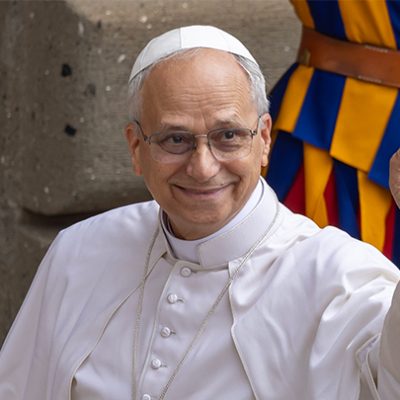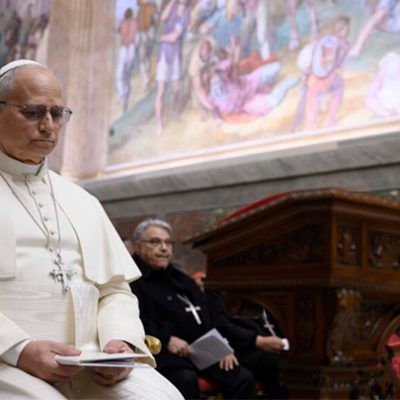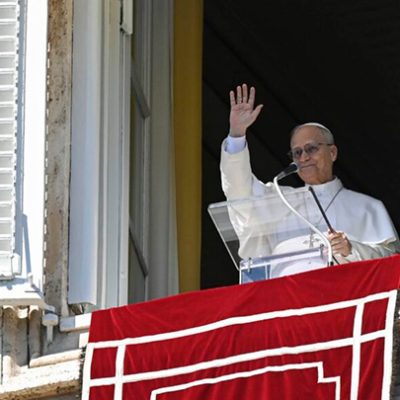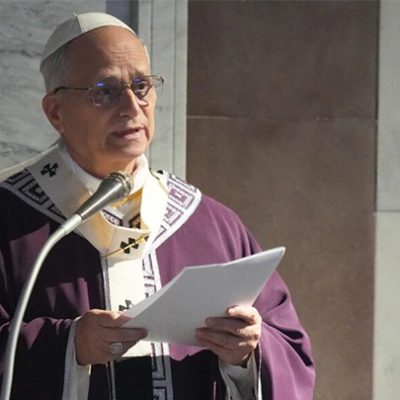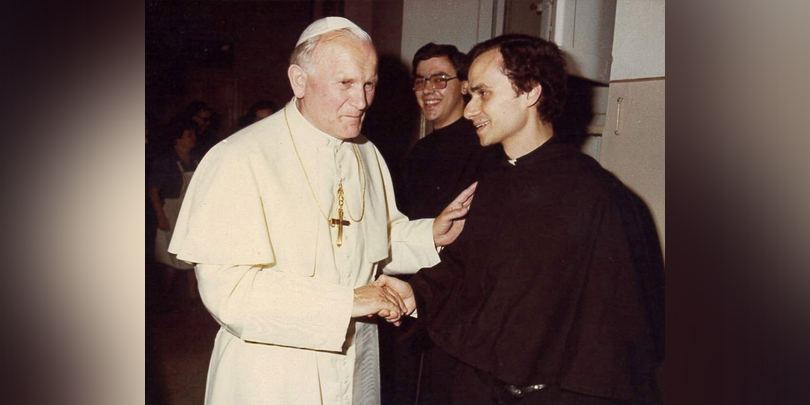
A copy of the doctoral dissertation of Fr Robert Prevost — now Pope Leo XIV — has been discovered in the University of Sydney’s Fisher Library, Daniel Canaris writes . Source: ABC News.
In 2002, a scholar at the University of Sydney made a request to Fisher Library for what then seemed to be an unremarkable dissertation.
Titled “The Office and Authority of the Local Prior in the Order of Saint Augustine”, the dissertation was published in 1987 as part of a doctoral degree in Canon Law at the Pontifical College of St Thomas Aquinas (Angelicum) in Rome.
In the September of the year before the request, its author, Fr Robert Francis Prevost, an Augustinian friar hailing from Chicago, had been elected Prior General of his order after years of pastoral work in Peru, so his views on the order’s governance would have been topical.
Fisher Library had the foresight to procure a copy that has now resurfaced after its author’s unexpected election as Pope Leo XIV.
This precious volume — now in the Rare Books and Special Collections of Fisher Library — is the only copy of the thesis located in the southern hemisphere and one of only a handful of copies worldwide.
Unlike previous popes, whose elections were preceded by widely diffused writings, this thesis is the only significant work published by the pope prior to his election. Thus, it gives us crucial insights into the Pope’s vision for the Church and its leadership.
From its opening pages, this thesis explores the challenges that modernity poses for the Catholic Church.
While Fr Prevost recognises that the Church cannot embrace all modern values, he is not antagonistic towards them. As the world has changed, so the Church must adapt.
Old notions of authority and obedience are no longer sustainable in an age defined by human subjectivity — which he terms “personalism” in a tacit nod to the ethics of Pope John Paul II:
Values have changed, there is a new understanding of the dignity of each person, and a new age of personalism has been born. Obedience as blind submission to the will of another is no longer accepted, and authority at all levels has been challenged, with claims that promote the values of human liberty and democracy but do not accept or understand the Church’s standpoint on authority and obedience.
From there, the future pope introduces the main theme of his thesis — namely, an exploration of the juridical authority and responsibilities of the local prior in the Augustinian order following the reforms of the Second Vatican Council.
Daniel Canaris is Lecturer in Italian Studies at the University of Sydney. He is an intellectual historian who specialises in intercultural exchange in the early modern period.
FULL STORY
Freedom and authority in the Catholic Church: Pope Leo XIV’s ecclesiological manifesto — housed in the University of Sydney library (By Daniel Canaris, ABC News)



